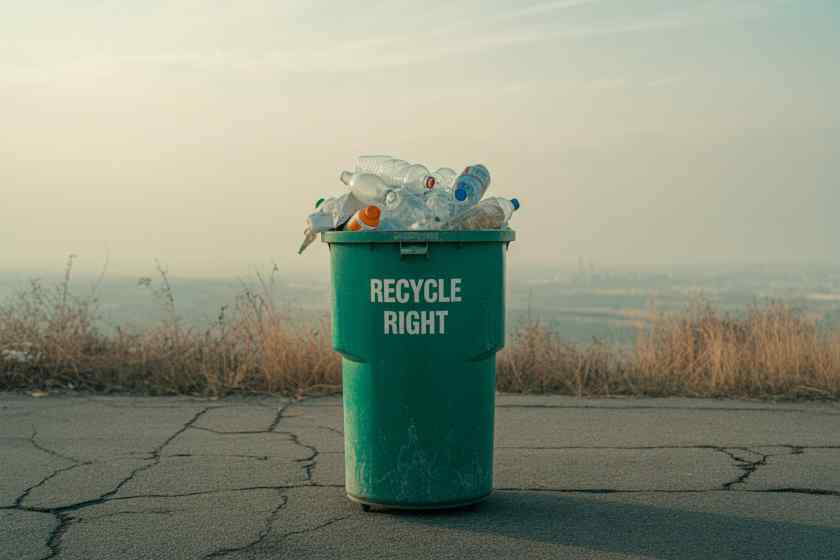Bali, Indonesia: New Tourism Regulations Require Hotels to Adopt Eco-Friendly Practices Amid Waste Management Challenges
Bali introduces new eco-friendly practices for hotels and resorts to tackle waste management, urging tourists to support sustainability efforts starting in 2025.
To solve waste management issues on top of the bad flooding on the island, the Indonesian Minister for Environment, Hanif Faisol Nurofiq, asked the top hotels and resorts on Bali to become more green. This is a change for the government in Bali in regard to waste management in the tourism and hospitality departments. Tourists are encouraged to stay at the hotels that focus on waste management and other green initiatives.
Bali is no stranger to poor waste management as the stories of the massive amounts of waste produced from locals and tourists have made the rounds for the last few years. The island, in the month of September, suffered the worst flooding its seen in over 70 years. This makes the need for a reform stronger than ever. This isn’t just a local issue, other countries are looking at it as well, which is why the government is taking action.
The Indonesian Minister for Environment has now issued a stern directive to Bali’s tourism sector, urging top hotels and resorts to implement proper disposal of waste, recycling, and reducing tourism’s overall impact on the environment. Those hotels that do not follow the new guidelines, especially the environmental ones, will face penalties. Those hotels that do follow eco-friendly practices will be considered champions in the field of sustainable tourism.
The Struggle with Waste Management
The mounting expectation from the main land to Bali, not to forget the roads getting to Bali, gets worse by the day, as the new as a world destination for tourism blooms. Bali is well known for being a tropical paradise. Unfortunately, from some vantage points, the beauty is marred by the litter being carelessly strewn – the plastic is the worst. Most of Bali’s waste problem, Bali’s claim to fame, and the associated beauty is littered with waste due to the negligence of us humans and has become a topic of international discourse favoring action so that the island’s beauty is not lost.
Like many other places around the world if not the most, Bali is facing diverse and overwhelming challenges of waste management. Problems such as uncontrolled development, waste disposal system inadequacies, and an increase in the number of tourists each year all contribute to the negativity of the ecosystem. Although the government and other organizations in this area of Bali have established and worked on plans to promote recycling and reduce waste, the practical application of these plans is yet to come. The secondary problem of neglecting to address these plans is the new regulations aimed at Bali’s hotels and resorts which still attempt to drive meaningful change to the island.
Hotels and resorts have been tasked to ensure their operations cover all aspects of environmental sustainability as part of Bali’s new policies. The focus is particularly on waste management. These hotels and resorts are required to support waste reduction policies by adopting waste sorting, using biodegradable and compostable products, reduction of unnecessary single-use plastics, and the application of water and energy-saving measures.
People travelling to bali will have to face these changes by picking hotels that have adopted sustainable and eco-friendly practices. Travellers to bali, especially from green-conscious countries, will try to find hotels with green policies, including using solar energy, organic foods, and waste reduction. The new policy from the Indonesan government supports these travelers to not just purchase, but spend their stay at the hotels and resorts that are known for their practices of sustainability.
It is hoped that collaboration between tourists and the hospitality sector will result in better and responsible model of tourism on Bali, while also keeping the environment of this beautiful island for the future generations to enjoy.
Flooding in bali s september, 2025 was the major turning point for local leaders and environment protectors. The overwhelming rains which caused massive destruction of the infrastructure along with the dislocation of thousands of people bring to the surface the islands exposure to climate exhaustion and environment neglect. But this also made the waste management problem much worse, as the waste of debris and garbage that had been left was aggravated and pollution of the environment continued.
Recent floods on Indonesia’s island of Bali highlight a need to reform policies regarding waste management and distribution on the island. Managing the region’s waste better is a shared responsibility, and we can start by managing the waste generated by the tourism sector, which is a key pillar of Bali’s economy.
In Bali, the Role of Tourists
Local regulations regarding waste management have expanded the responsibilities of tourists, and all incoming travelers are told to do their part. Once in Bali, travelers can book eco-friendly hotels. This reduces their carbon footprint and supports sustainable tourism. Tourists can also curtail waste on the island by refusing single-use products, especially water bottles.
The main purpose of this initiative is to also stimulate joint efforts by the public and private sectors to improve recycling facilities and waste disposal systems. Result-driven public policies should help manage waste better, thereby leading to decreased pollution, cleaner beaches, and a tourism industry that operates in compliance with the global tourism waste management ecosystem.
Looking Ahead – Tourism In Bali
For Bali, the ever growing island requires tourism’s residents, businesses, and visitors to work together. For Bali’s ever growing economy, the damage caused by over and poorly managed tourism needs to be plummeted very quickly. Responsible tourism needs to be highly efficient to make the most of the remaining time.
By adopting required practices reducing negative impacts caused by tourism, Bali still holds the potential of remaining a top preferred destination for travelers who care about the nature. The beauty and the nature of the island, will be a gift for the generations to come.
The post Bali, Indonesia: New Tourism Regulations Require Hotels to Adopt Eco-Friendly Practices Amid Waste Management Challenges appeared first on Travel and Tour World


Comments and Responses
Please login. Only community members can comment.